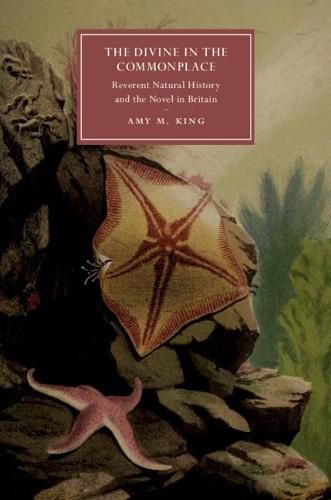Readings Newsletter
Become a Readings Member to make your shopping experience even easier.
Sign in or sign up for free!
You’re not far away from qualifying for FREE standard shipping within Australia
You’ve qualified for FREE standard shipping within Australia
The cart is loading…






Realism has long been associated with the secular, but in early nineteenth-century England a realist genre existed that was highly theological: popular natural histories informed by natural theology. The Divine in the Commonplace explores the ‘reverent empiricism’ of English natural history and how it conceives observation and description as a kind of devotion or act of reverence. Focusing on the texts of popular natural historians, especially seashore naturalists, Amy M. King puts these in conversation with English provincial realist novelists including Austen, Gaskell, Eliot, and Trollope. She argues that the English provincial novel has a ‘reverent form’ as a result of its connection to the practices and representational strategies of natural history writing in this period, which was literary, empirical, and reverent. This book will appeal to students and scholars of nineteenth-century literature, science historians, and those interested in interdisciplinary connections between pre-Darwinian natural history, religion, and literature.
$9.00 standard shipping within Australia
FREE standard shipping within Australia for orders over $100.00
Express & International shipping calculated at checkout
Realism has long been associated with the secular, but in early nineteenth-century England a realist genre existed that was highly theological: popular natural histories informed by natural theology. The Divine in the Commonplace explores the ‘reverent empiricism’ of English natural history and how it conceives observation and description as a kind of devotion or act of reverence. Focusing on the texts of popular natural historians, especially seashore naturalists, Amy M. King puts these in conversation with English provincial realist novelists including Austen, Gaskell, Eliot, and Trollope. She argues that the English provincial novel has a ‘reverent form’ as a result of its connection to the practices and representational strategies of natural history writing in this period, which was literary, empirical, and reverent. This book will appeal to students and scholars of nineteenth-century literature, science historians, and those interested in interdisciplinary connections between pre-Darwinian natural history, religion, and literature.